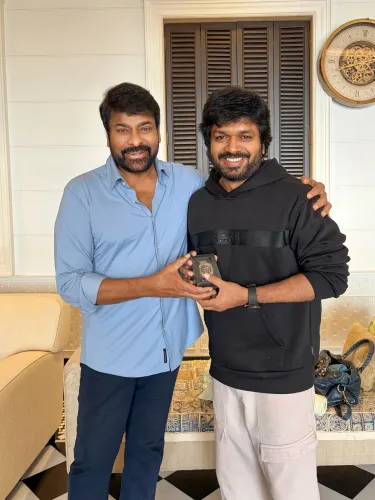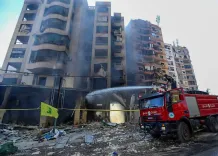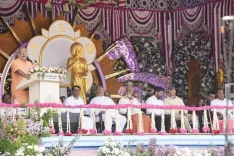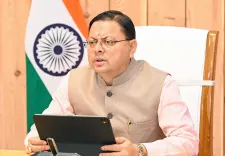Did Vivan Bhathena Reveal That Farhan Akhtar Was Never a Producer on the Sets of ‘120 Bahadur’?

Synopsis
Key Takeaways
- Farhan Akhtar focused solely on his acting role while filming.
- The film ‘120 Bahadur’ pays tribute to soldiers of the 1962 war.
- Vivan Bhathena highlighted the importance of teamwork and guidance on set.
- Stunning visuals of Ladakh enhance the film's narrative.
- The story reflects on crucial historical events in India.
Mumbai, Nov 23 (NationPress) Actor Vivan Bhathena, who portrays a soldier in the newly released film ‘120 Bahadur’, disclosed that his fellow actor Farhan Akhtar never took on the role of a co-producer during filming. Vivan emphasized that Farhan was entirely focused on his acting duties while on set.
In an interview with IANS during the film's promotional events, Vivan noted that Farhan consciously set aside his producer persona for the film's benefit.
He stated to IANS, “Farhan is not a producer on the set ever. He comes as an actor. In fact, we were also hoping that the producer side will come out somewhere, and we will get to see that. Nothing of that sort happened. He never interfered, never said a word. It was just himself busy with the character, did his part, asked the director if he needed to do anything else.”
“He never unnecessarily interfered with anything or made any unnecessary suggestions. We would always ask him for guidance. He would always guide us in the right way and tell us not what to do, but how to feel. So, those are important things,” he added.
‘120 Bahadur’ pays tribute to the valiant Ahir soldiers of Charlie Company, 13 Kumaon Regiment who sacrificed their lives in the Battle of Rezang La during the Indo-Sino war of 1962.
The film showcases the stunning vistas of Ladakh and draws inspiration from the historical events of the 1962 India-China conflict. The war emerged due to the ambiguous borders along Aksai Chin in northern India and Arunachal Pradesh. China's construction of a roadway through Aksai Chin, which India claimed, escalated tensions. Diplomatic discussions fell through, and in October 1962, Chinese forces initiated a dual-front offensive.
India faced significant losses in the conflict due to Jawaharlal Nehru’s reluctance to deploy the air force and the inadequate military infrastructure in border regions. The USSR, one of India's closest allies during that time, could not assist due to its involvement in the Cuban missile crisis amidst the Cold War.









